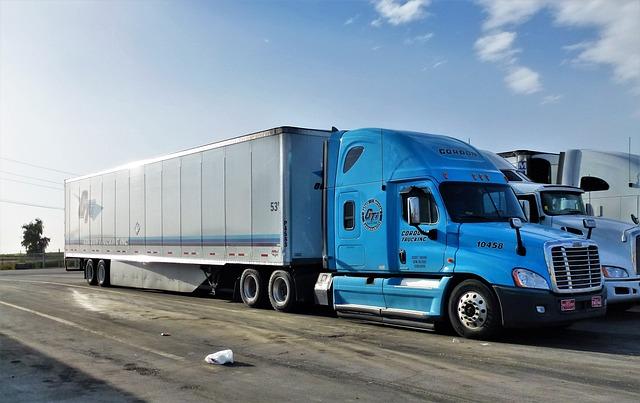Logistics, the art of efficiently managing the intricate flow of goods and information, lies at the heart of the automotive industry. From vehicle transport to route optimization and inventory management, logistics plays a pivotal role in ensuring that cars and their components reach their destination swiftly and cost-effectively. This article offers a detailed exploration of the logistics landscape in the automotive industry, highlighting the significance of effective planning, the intricacies of the supply chain, and how companies like Autodoc navigate these challenges while delivering innovation and efficiency.

Key Aspects of Logistics in the Automotive Industry
Automotive logistics encompasses several crucial elements, each playing a role in the industry’s smooth operation:
Vehicle Transport: The movement of vehicles from manufacturing plants to dealerships is a fundamental aspect of automotive logistics. Effective planning and coordination of vehicle transport can reduce costs and speed up delivery times, ensuring that new cars reach customers promptly.
Route Optimization: Optimizing delivery routes is essential for efficient logistics. Route planning software and data analysis play a significant role in ensuring that vehicles and parts take the most efficient path to their destination.
Inventory Management: Maintaining the right level of inventory is vital to meet demand without overstocking. Effective inventory management ensures that auto parts are readily available when needed and reduces storage costs.
Cost Reduction: Logistics is a significant cost factor in the automotive industry. Effective planning, streamlined processes, and innovative technologies can help reduce logistics costs and improve the overall profitability of the industry.
The Automotive Supply Chain
The automotive supply chain is a complex web of processes, including production, storage, transportation, and retail. Several technologies and strategies are employed to ensure efficient and timely delivery:
Production: Automotive manufacturers utilize just-in-time manufacturing processes, reducing the need for large storage facilities and minimizing waste. The process begins with manufacturing, where intricate planning ensures that vehicles roll off the assembly line on time.
Storage: Efficient warehousing is vital for housing both completed vehicles and the myriad parts required for repairs and maintenance. Advanced warehousing systems, including automation and robotics, optimize storage space and retrieval of components.
Transportation: Transportation logistics involve moving vehicles and parts from manufacturing plants to storage facilities and, eventually, to dealerships or repair shops. GPS tracking, telematics, and data analytics play a crucial role in monitoring vehicle and part movement, enabling real-time adjustments to routes and schedules.
Retail: At the retail end, inventory management ensures that the right models and parts are readily available to meet consumer demand. Efficient dealer networks ensure that vehicles are available to customers promptly, backed by timely delivery and inventory management.
Challenges in Automotive Logistics
While advancements in logistics have revolutionized the automotive industry, challenges persist:
Demand Fluctuations: Events like natural disasters, political instability, or global crises can disrupt the supply chain, causing delays and increased costs.
Inventory Management: Balancing the need for sufficient inventory with the avoidance of overstocking requires precision.
Globalization: International logistics pose complex challenges, including customs regulations and varying transportation infrastructures.
Environmental Regulations: The automotive industry is increasingly focused on reducing the environmental impact of logistics, with a shift towards sustainable practices.
Cybersecurity: Protecting sensitive logistical data from cyber threats is a growing concern.
Innovations and Solutions
To overcome these challenges and optimize the automotive logistics process, innovative solutions are being developed:
Predictive Analytics: Data-driven predictive analytics and artificial intelligence help forecast demand, reducing supply chain disruptions.
Blockchain Technology: Enhances transparency and security in supply chain management.
Electric and Autonomous Vehicles: Electric and autonomous delivery vehicles offer potential cost savings and reduced environmental impact.
Sustainable Practices: Incorporating eco-friendly packaging and transportation options.
Automotive logistics is the unseen force that keeps the automotive industry rolling. From vehicle transport to inventory management, it’s the intricate planning and technological innovations that ensure cars reach showrooms and auto parts reach repair shops efficiently. Companies like AUTODOC are at the forefront of these developments, navigating the complexities of the automotive supply chain to deliver innovation and efficiency while addressing the challenges of an ever-evolving industry.





Comments are closed.